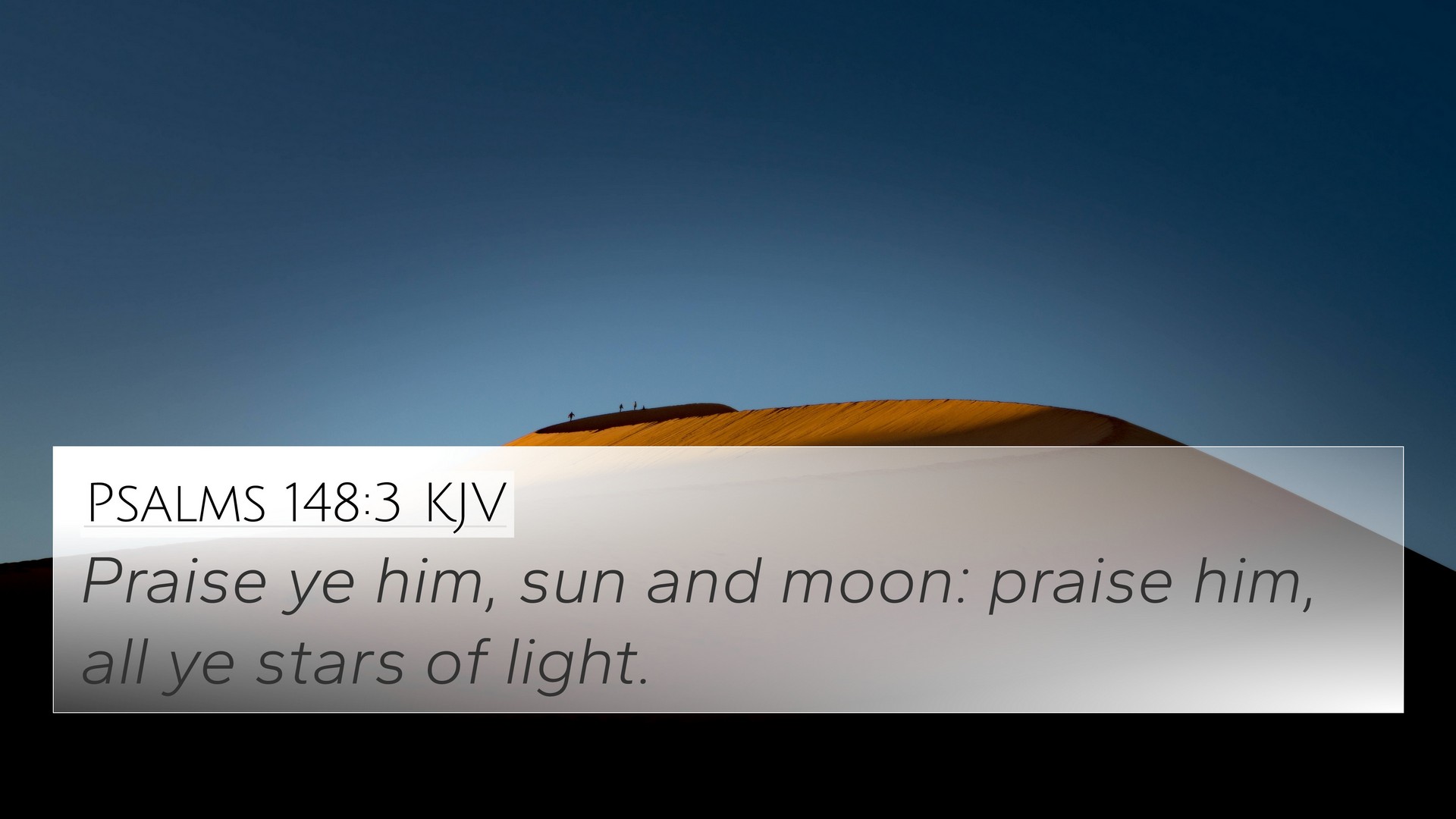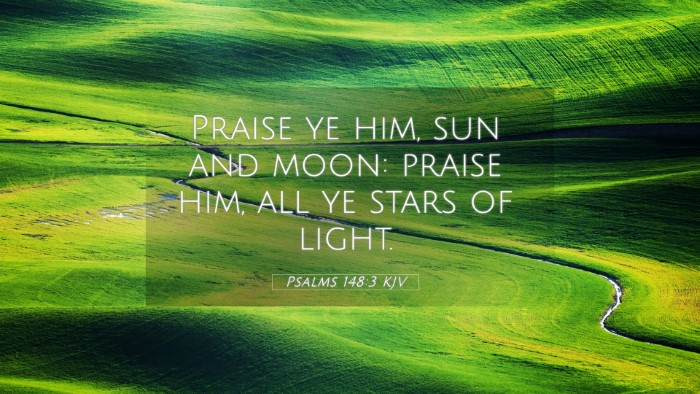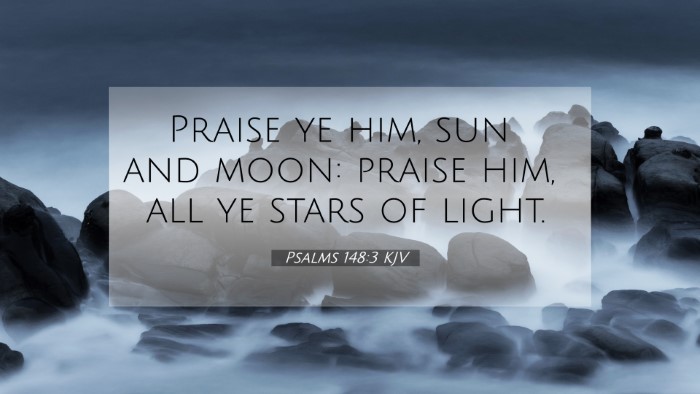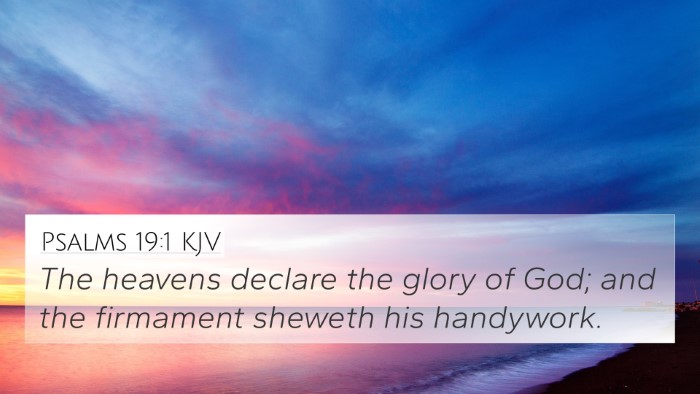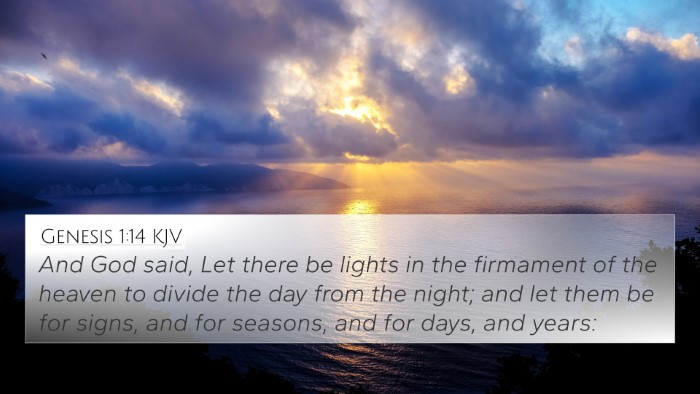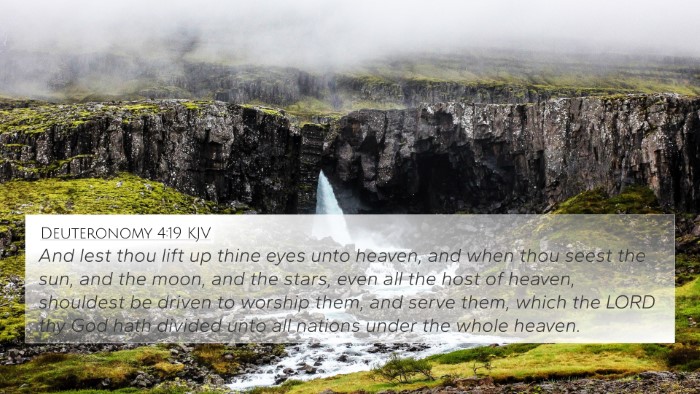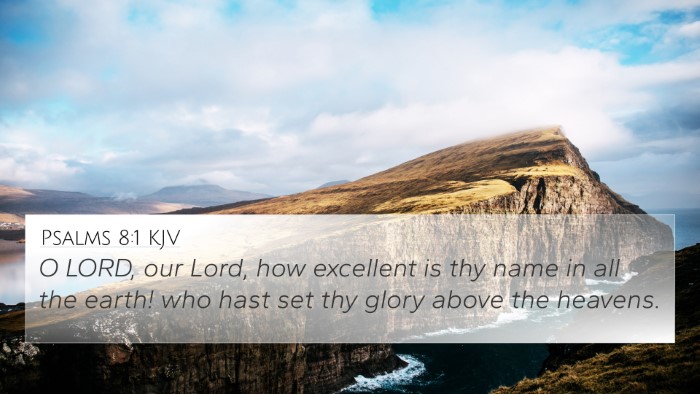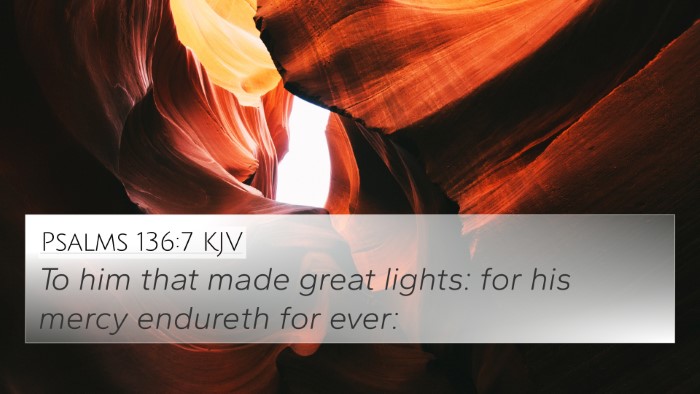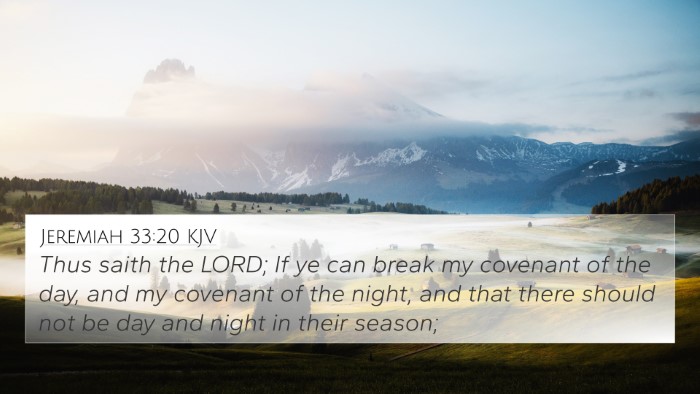Psalms 148:3 Meaning and Interpretation
Verse: "Praise ye him, sun and moon: praise him, all ye stars of light."
Psalms 148:3 calls upon celestial beings—the sun, moon, and stars—to give praise to the Lord. This call is part of a larger psalm that emphasizes the grandeur of God’s creation and highlights the responsibility of all of creation to glorify its Creator.
Insights from Public Domain Commentaries
Matthew Henry's Commentary
Henry suggests that this verse is a strong reminder of God's sovereignty over the universe. He notes that the sun and moon are created to serve their function, and in doing so, they reflect God's glory. They are not only luminaries but also symbols of God's faithfulness and power. Their praise is an acknowledgment of their role in the divine plan.
Albert Barnes' Notes on the Bible
Barnes provides context by explaining that the sun, moon, and stars serve as witnesses to God's creative power. He emphasizes that these celestial bodies are included in the call to praise because they contribute to the order and beauty of the world. The praise of heavenly bodies points to God's magnificence, and their existence is a continual testimony to His greatness.
Adam Clarke's Commentary
Clarke interprets this directive as a poetic form of urging all of creation to acknowledge God's supremacy. He highlights that the sun and moon do not have a will of their own yet fulfill their purpose perfectly, which serves as an example for humanity. Clarke further underlines the metaphorical aspect of praising God; everything in existence, by its very nature, is involved in worship through its function and existence.
Connections and Cross-References
Psalms 148:3 is enriched through connections with numerous other scriptures that emphasize themes of creation and divine praise. Understanding these connections can enhance the meaning of this verse and provide a more profound insight into its implications.
- Genesis 1:14-19: This passage describes the creation of the sun, moon, and stars, underscoring God's intention and authority over celestial bodies.
- Psalm 19:1: "The heavens declare the glory of God; and the firmament shows his handiwork." This verse highlights the idea that creation itself proclaims God's glory.
- Job 38:7: "When the morning stars sang together, and all the sons of God shouted for joy." Here, the stars are depicted as part of a cosmic chorus praising God.
- Isaiah 40:26: "Lift up your eyes on high, and behold who has created these things, that brings out their host by number: he calls them all by names." This underscores God's power over the universe.
- Revelation 4:11: "Thou art worthy, O Lord, to receive glory and honor and power; for thou hast created all things, and for thy pleasure they are and were created." This affirms the purpose of creation in glorifying God.
- Colossians 1:16: "...for by him were all things created that are in heaven, and that are in earth, visible and invisible..." This connects the praise of the heavens to their creation through Christ.
- Psalms 136:7-9: "To him that made great lights: for his mercy endures forever: the sun to rule by day: for his mercy endures forever; the moon and stars to rule by night: for his mercy endures forever." This psalm acknowledges the sun, moon, and stars as key elements of God's creation worthy of praise.
Understanding through Cross-Referencing
The study of Psalms 148:3 can be greatly enriched through cross-referencing. Engaging with related verses provides a broader framework for understanding the role of celestial praise in the context of creation. Here are some methodological tools and resources that can assist in this exploration:
- Bible Concordance: Helpful in identifying words and themes across different books of the Bible.
- Bible Cross-Reference Guide: Systematizes scriptures that resonate with each other thematically.
- Bible Chain References: Allows readers to follow a thematic trail from one verse to another.
- Cross-Referencing Bible Study Methods: Provides structured approaches to connect and understand scriptures.
Conclusion
In conclusion, Psalms 148:3 invites both heavenly and earthly creations to offer praise to God. As discussed, the examination of this verse through various commentaries, coupled with thoughtful cross-referencing, reveals rich layers of meaning regarding our relationship to the Creator and the universal call to worship. The interconnectedness of scripture underscores the thematic nuances of divine praise, demonstrating that all of creation, from the stars in the sky to humanity below, have a harmonious purpose in glorifying God.
